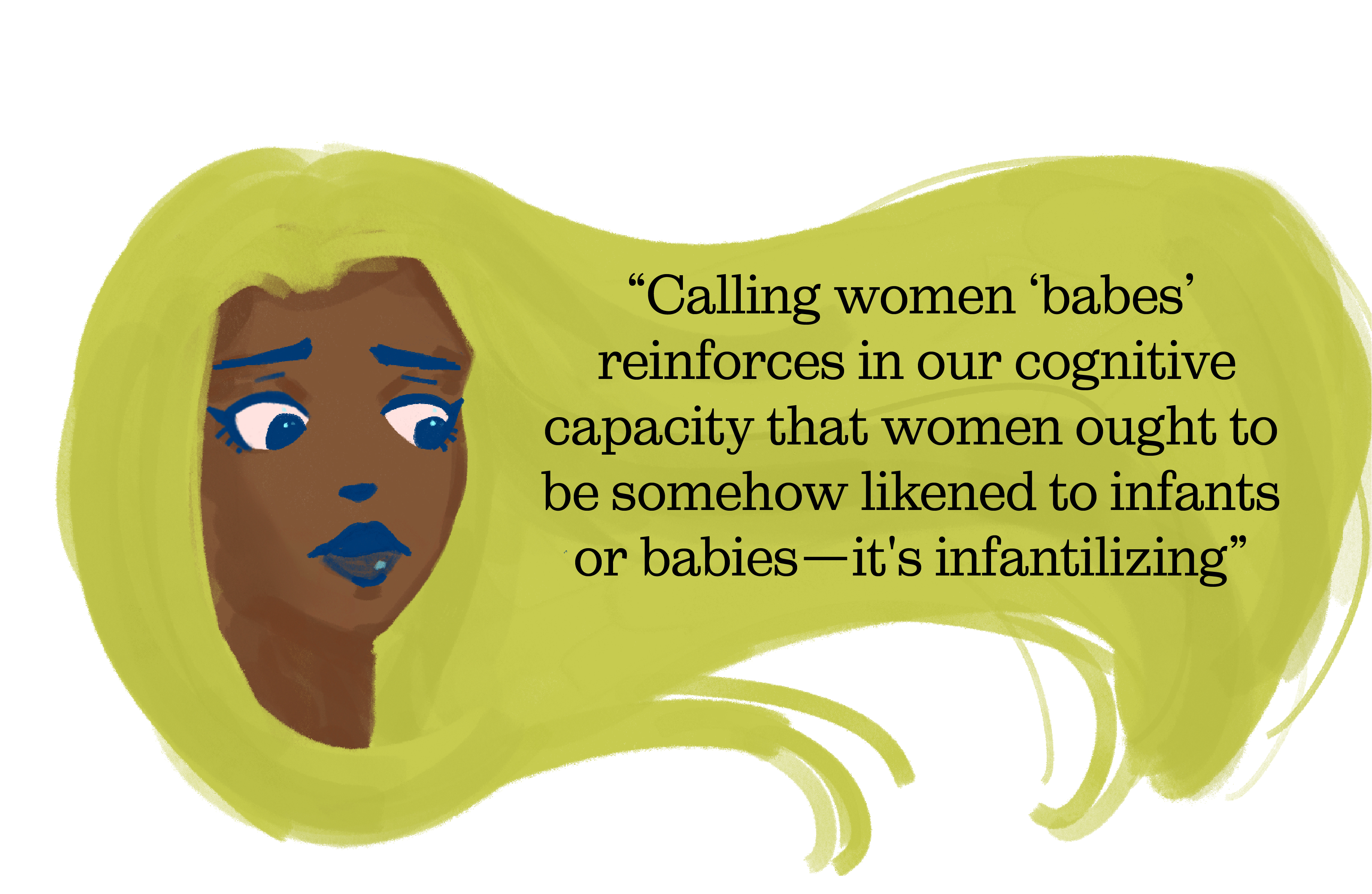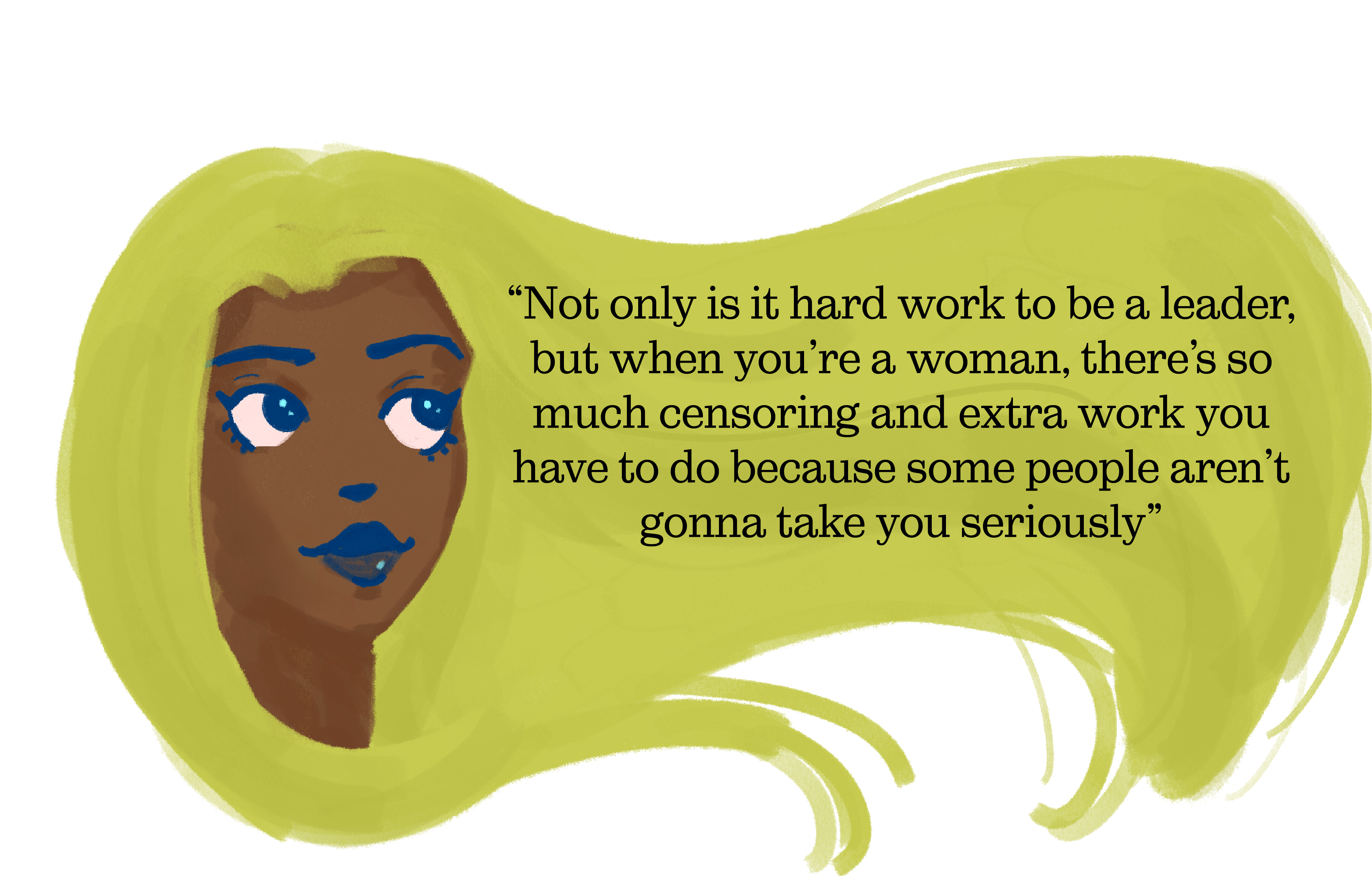Why we've got to stop using the phrase "Girlboss"
Why we've got to stop using the phrase "Girlboss"
The short answer? You’d never call a man a “Boyboss”
The short answer? You’d never call a man a “Boyboss”
By Aaliyah Dasoo and Asmaa Toor
By Aaliyah Dasoo and Asmaa Toor
When founder and former CEO of fashion retailer Nasty Gal Sophia Amoruso published her autobiography #Girlboss in 2014, she created a blueprint for a new sort of clique-based feminism.
#Girlboss sold half a million copies, was picked up by Netflix and Amoruso even launched Girlboss Media—a company that produces a podcast, videos, and other editorial content aimed at young female professionals. In short, the culture took off, but Amoruso wasn’t the single architect of girlboss culture.
Businesswoman Audrey Gelman co-founded The Wing in 2016. The Wing is a “women-focused” working space based in New York City, created on the basis that women needed their own space to take meetings, network and yes, refresh their makeup.
The branding was attractive. #Girlboss made its way onto mugs, t-shirts and shareable Instagram posts worldwide. The Wing not only charged $3000 a year for membership, but also sold merch to the women who were lucky enough to make it into the club. As reported by The New York Times, The Wing’s merchandise features key chains that read “girls doing whatever the [!@#$] they want,” tote bags that say “TAKING UP SPACE,” and socks that read “PAY ME”.
Similar organizations popped up over the next few years: see SheEO in 2015, and BossBabe in 2013.
But behind the rose gold office decor, pink notebooks and sparkly stationery, are women who have climbed their career ladders and made major strides in their careers—that should be defined by more than their gender.
When founder and former CEO of fashion retailer Nasty Gal Sophia Amoruso published her autobiography #Girlboss in 2014, she created a blueprint for a new sort of clique-based feminism.
#Girlboss sold half a million copies, was picked up by Netflix and Amoruso even launched Girlboss Media—a company that produces a podcast, videos, and other editorial content aimed at young female professionals. In short, the culture took off, but Amoruso wasn’t the single architect of girlboss culture.
Businesswoman Audrey Gelman co-founded The Wing in 2016. The Wing is a “women-focused” working space based in New York City, created on the basis that women needed their own space to take meetings, network and yes, refresh their makeup.
The branding was attractive. #Girlboss made its way onto mugs, t-shirts and shareable Instagram posts worldwide. The Wing not only charged $3000 a year for membership, but also sold merch to the women who were lucky enough to make it into the club. As reported by The New York Times, The Wing’s merchandise features key chains that read “girls doing whatever the [!@#$] they want,” tote bags that say “TAKING UP SPACE,” and socks that read “PAY ME”.
Similar organizations popped up over the next few years: see SheEO in 2015, and BossBabe in 2013.
But behind the rose gold office decor, pink notebooks and sparkly stationery, are women who have climbed their career ladders and made major strides in their careers—that should be defined by more than their gender.

ALL TALK, NO WALK
According to Diana Boxer, a linguistics professor at the University of Florida “anything that we do with language has the power to shape our thinking.”
Boxer explains that since language is ingrained into the mind, it’s linked to the way people are treated. “The adjectives and phrases associated with women become attached to what [or] how women are supposed to be and we then expect them to be that way,” she said.
“If we reiterate terms like ‘girl’ [when] referring to grown women, then we're diminishing the role of women, likening all females to younger, less able beings.”
This is how the sort of language that perpetuated through the culture of these organizations undermines the authority of women, and according to Boxer, diminishes women's standing and power in workplaces.
She continues: “Calling women ‘babes’ reinforces in our cognitive capacity that women ought to be somehow likened to infants or babies—it's infantilizing.”
ALL TALK, NO WALK
According to Diana Boxer, a linguistics professor at the University of Florida “anything that we do with language has the power to shape our thinking.”
Boxer explains that since language is ingrained into the mind, it’s linked to the way people are treated. “The adjectives and phrases associated with women become attached to what [or] how women are supposed to be and we then expect them to be that way,” she said.
“If we reiterate terms like ‘girl’ [when] referring to grown women, then we're diminishing the role of women, likening all females to younger, less able beings.”
This is how the sort of language that perpetuated through the culture of these organizations undermines the authority of women, and according to Boxer, diminishes women's standing and power in workplaces.
She continues: “Calling women ‘babes’ reinforces in our cognitive capacity that women ought to be somehow likened to infants or babies—it's infantilizing.”

Nya Hemming is a third-year business management student at the Ted Rogers School of Management, as well as being the executive vice president of Ryerson Women in Leadership (RWIL).
RWIL is a student group dedicated to the empowerment and success of women at Ryerson. They mentor young, female professionals and connect them to a network of working women and Ryerson alumna.
Currently, the RWIL Facebook page has over 1500 likes and followers. Hemming says that this year, RWIL had conversations about what they really wanted to accomplish, given their large social media following and platform among the Ryerson community.
“Instead of spewing out a whole bunch of fluff...we should be providing more information and resources because we have that reach to students,” she said.
Hemming added that RWIL feels a sense of responsibility when it comes to the narrative of female leaders that they perpetuate through their programming, by being conscious of the way they word events and in the roles they offer when recruiting new members.
They aims to maintain a certain level of professionalism on their social media pages.
“We want to make it known that [RWIL] is not just one of those female empowerment fluffy Instagram pages. That's not what this is.
Even the pink backdrop to what I’ve been seeing is problematic. It puts this feminine stamp on empowerment and women in leadership completely ignores other experiences.”
Branding feminism in this sort of empty manner can lead to what Boxer describes as a “double bind.”
“We're damned if we use more assertive language, risking our being termed 'bitches', but we're also damned if we use stereotypical feminine ways with language, deeming us weak. So we're caught in this bind where whatever we do can be criticized”, she said.
Hemming says she feels this pressure in academic settings, especially given the heavy group-work nature of business school. “I constantly feel like I have to cushion what I say or be wary of how I present myself,” she said.
“Not only is it hard work to be a leader, but when you’re a woman, there’s so much censoring and extra work you have to do because some people aren’t gonna take you seriously.”
Hemming said she’s been in situations during group work where she’d voice her opinion or make a good point, then be met with unenthusiastic response. “But when my male counterpart said the exact same thing, people kind of went with it,” she said.
“I feel like [male peers] don't have to think about ‘am I being too pushy, am I acting too nice, am I being too mean or assertive?’. They're given the benefit of the doubt [whereas for women], there's so many things we have to [think about] so we’re not read wrong.”
According to a 2013 study from the Harvard Business Review (HBR), women who are in leadership positions are deemed less likeable than men in similar ranks. Interestingly, it’s not because of the success they have achieved, but rather the fact that they’re challenging gender stereotypes of how women are “supposed” to behave.
Through their peer reviewed studies, HBR found that “if a woman acts assertively or competitively…she is deviating from the social script that dictates how she ‘should’ behave.
By violating beliefs about what women are like, successful women elicit pushback from others for being insufficiently feminine and too masculine.” In turn, the study found that people expect women to not be as successful as they are and as a result are inherently uncomfortable with women in power.
Sabreena Ghaffar-Siddiqui is a sociology professor at Sheridan College and a research expert on gender in society. She explains that the way women present themselves in the workplace has far more significance than it does for their male counterparts.
“Men need to have certain skills and characteristics in the workplace to be considered a boss, whereas a woman has to look a certain way to be considered a boss or a strong leader,” she said.
Nya Hemming is a third-year business management student at the Ted Rogers School of Management, as well as being the executive vice president of Ryerson Women in Leadership (RWIL).
RWIL is a student group dedicated to the empowerment and success of women at Ryerson. They mentor young, female professionals and connect them to a network of working women and Ryerson alumna.
Currently, the RWIL Facebook page has over 1500 likes and followers. Hemming says that this year, RWIL had conversations about what they really wanted to accomplish, given their large social media following and platform among the Ryerson community.
“Instead of spewing out a whole bunch of fluff...we should be providing more information and resources because we have that reach to students,” she said.
Hemming added that RWIL feels a sense of responsibility when it comes to the narrative of female leaders that they perpetuate through their programming, by being conscious of the way they word events and in the roles they offer when recruiting new members.
They aims to maintain a certain level of professionalism on their social media pages.
“We want to make it known that [RWIL] is not just one of those female empowerment fluffy Instagram pages. That's not what this is.
Even the pink backdrop to what I’ve been seeing is problematic. It puts this feminine stamp on empowerment and women in leadership completely ignores other experiences.”
Branding feminism in this sort of empty manner can lead to what Boxer describes as a “double bind.”
“We're damned if we use more assertive language, risking our being termed 'bitches', but we're also damned if we use stereotypical feminine ways with language, deeming us weak. So we're caught in this bind where whatever we do can be criticized”, she said.
Hemming says she feels this pressure in academic settings, especially given the heavy group-work nature of business school. “I constantly feel like I have to cushion what I say or be wary of how I present myself,” she said.
“Not only is it hard work to be a leader, but when you’re a woman, there’s so much censoring and extra work you have to do because some people aren’t gonna take you seriously.”
Hemming said she’s been in situations during group work where she’d voice her opinion or make a good point, then be met with unenthusiastic response. “But when my male counterpart said the exact same thing, people kind of went with it,” she said.
“I feel like [male peers] don't have to think about ‘am I being too pushy, am I acting too nice, am I being too mean or assertive?’. They're given the benefit of the doubt [whereas for women], there's so many things we have to [think about] so we’re not read wrong.”
According to a 2013 study from the Harvard Business Review (HBR), women who are in leadership positions are deemed less likeable than men in similar ranks. Interestingly, it’s not because of the success they have achieved, but rather the fact that they’re challenging gender stereotypes of how women are “supposed” to behave.
Through their peer reviewed studies, HBR found that “if a woman acts assertively or competitively…she is deviating from the social script that dictates how she ‘should’ behave.
By violating beliefs about what women are like, successful women elicit pushback from others for being insufficiently feminine and too masculine.” In turn, the study found that people expect women to not be as successful as they are and as a result are inherently uncomfortable with women in power.
Sabreena Ghaffar-Siddiqui is a sociology professor at Sheridan College and a research expert on gender in society. She explains that the way women present themselves in the workplace has far more significance than it does for their male counterparts.
“Men need to have certain skills and characteristics in the workplace to be considered a boss, whereas a woman has to look a certain way to be considered a boss or a strong leader,” she said.

